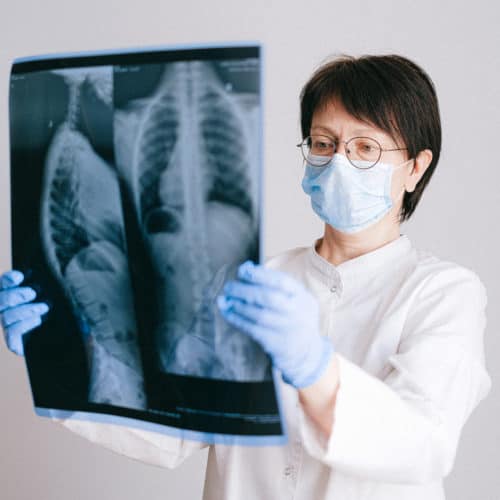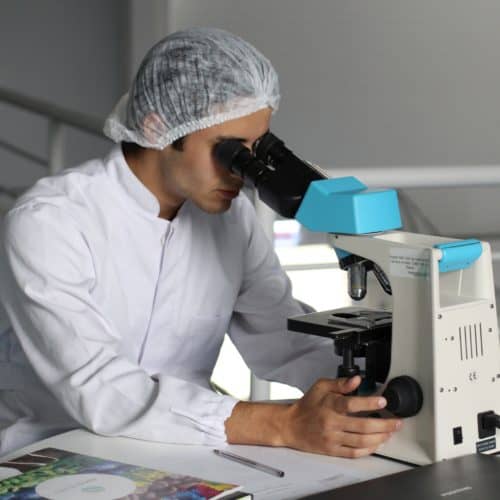
Finding and landing a spot in your desired thesis lab is a two-way street. They are assessing you just as much as you are evaluating them. That being said, each lab is different, so naturally, each of your rotations will vary in experience. There are certain things outside of your control that may impact whether or not you secure a lab position such as funding and space availability. However, there are certain things that are in your control to present yourself as a desirable lab mate and mentee to take on. I have shared some general guidelines on navigating the rotation experience based on my personal experiences of rotating through labs and then being on the other side of the table to evaluate rotation students.
1. Showing that you’re a good “fit”
Do the lab members like being around you and do they feel comfortable around you? Does your personality mesh well with other people in the lab?
Asides from day-to-day interactions in the lab, I recommend showing interest in what the other lab members are working on. Ask to meet with them one-on-one or grab lunch to ask about their projects and lab experiences. It’s also a great way of setting up connections even if you don’t join the lab!
Some labs are more social than others. My labmates will set up lunches as well as drinks after work. Some labs may go out together for dinner. I recommend attending these outings to get to know your potential lab mates in a setting outside of work.
When I was doing my rotations, I felt like everyone across was nice. However, the lab that I ended up in gave me a great gut feeling; I felt like I could connect with the lab members through conversations both in and outside of work. Two years into the lab, I’m very happy and thankful to be surrounded by such great lab mates who are both supportive in the lab and fun hang out with outside of work, such as picnicking together in Central Park! I also love how when one of us is away for vacation, we will drop by each other’s apartment to water and check on our precious plant babies.

2. Show your capacity to learn and be independent
When someone takes the time to show you an experimental technique or computational skill, take good notes so you don’t have to ask the same questions again. If you are able to be shown something once and then do it on your own, that’s also an excellent way to demonstrate your ability to work independently. Ultimately, you are taking charge of your own project as a Ph.D. student and you’re going to have to plan and perform experiments independently. I know for my lab, one of the most important aspects for a rotation student is the ability to work independently. I will always write it down immediately after I’m taught a technique or if it’s a longer experiment then I take notes during the demonstration. I’m also highly visual so I’ll take pictures of different steps of the experiment to anchor my memory.

3. Ask thoughtful questions and participate in lab meeting
It may sound intimidating to speak in front of a group of people you barely know but it’s important to show that you can contribute new ideas and ask thoughtful questions. At least in my lab, we treat lab meetings as a way to update everyone on our project and to get feedback/ideas on our future steps or troubleshooting.
Additionally, on one-on-one meetings with your PI, make sure to come prepared and ask thoughtful questions. You can read more about how to prepare for a meeting like this here.
4. Give a good rotation presentation
If you have the opportunity to presentation your rotation to the lab, this is a chance to showcase what you’ve learned and the skills gained. It’s also an opportunity to showcase your communication and presentation skills. I remember putting quite a bit of effort to make my presentation as well as practice it with friends to gain feedback. Since I love baking, I also brought chocolate chip cookies to my lab presentation!

5. Give your mentor a “thank-you” note
You may have been paired with another grad student or a post-doc as your go-to person during your rotation. Being a mentor can take up a lot of time and work – make sure to show that you appreciate their time with a Thank-You card. Add a personal touch by sharing what you learned and why you appreciate their time and help!

In summary
1. Showing that you’re a good “fit”
2. Show your capacity to learn and be independent
3. Ask thoughtful questions and participate in lab meeting
4. Give a good rotation presentation (if applicable)
5. Give your mentor a “thank-you” note
I hope that you find these tips helpful! And make sure to have fun during your rotation – it’s a wonderful opportunity to meet new people and gain new skills. To learn how to choose the right mentor and lab for you, click here.


